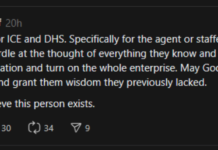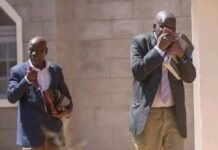There were no official national celebrations, but in cities and towns, cheering civilians displayed a celebratory mood, with buses, riders, and businesses displaying flags of their country. Large numbers trooped to churches for prayers, while others marked the day quietly in their homes.
The mainly Christian country–where there are also many followers of African traditional religions—gained independence from Sudan on 9 July 2011, after a 21-year liberation war. However, after slightly over a decade, immense economic, political, and humanitarian challenges are gripping the nation.
Recently, the war in Sudan has further complicated the challenges, with the already struggling population finding itself compelled to host thousands of refugees.
Anglican (Episcopal) Archbishop Justin Bandi Arama of South Sudan said the celebrations reminded of the sacrifices and struggles made to secure freedom and sovereignty, “but it was unfortunate the roof of our sovereignty is still leaking.
“We therefore pray and request all of us to double our efforts in mending the leaking roof through commitment to the roadmap for peace implementation and minimizing hate and violence,” said Arama in a statement.
As he pointed at the country’s freedom, Rev. Thomas Tut Puot, moderator of the South Sudan Presbyterian Evangelical Church re-stressed hope, saying his message for celebrating citizens was freedom in Christ.
“We are encouraging the people to celebrate their freedoms; not to do evil and not to think of going back to war,” said Puot. “The first thing we celebrate is that we have an identity as a nation. This is something we can say we have as South Sudanese.”
The country is attempting to implement the Revitalized Agreement on the Resolution of the Conflict in Republic of South Sudan, which the government and the South Sudanese People’s Liberation Movement/Army-Opposition signed in 2018 to end the 2013-2018 civil war. The war was triggered barely two years after independence.
The pact ended the actual combat, but ethnic violence continues among the communities. Church leaders warn the violence is not simply a local, communal, or tribal affair.
It is also attempting to integrate rival forces into the army, write a new constitution, and hold a general election. The elections were earlier set for February 2023, but officials moved them to December 2024.
Rachel Juan Nejua, the South Sudan Council of Churches advocacy coordinator, said women in the country were urging the government to respond urgently to the deteriorating economic and security situation.
“There has been an increase in communal conflicts. However, the people are hopeful that changes will be made,” said Nejua, adding that the ongoing rallies in preparation for the elections were a positive development. “Practically speaking, however, the people are tired.”
Meanwhile, despite the limited capacities and resources, Churches are welcoming and hosting refugees, fleeing the Sudan war. Thousands are returning home, while others are migrating for the first time.
“It is not their will to come back. They came back because of war. The places they fled are not yet safe, but we are receiving them and taking care of them as churches,” said Puot.



